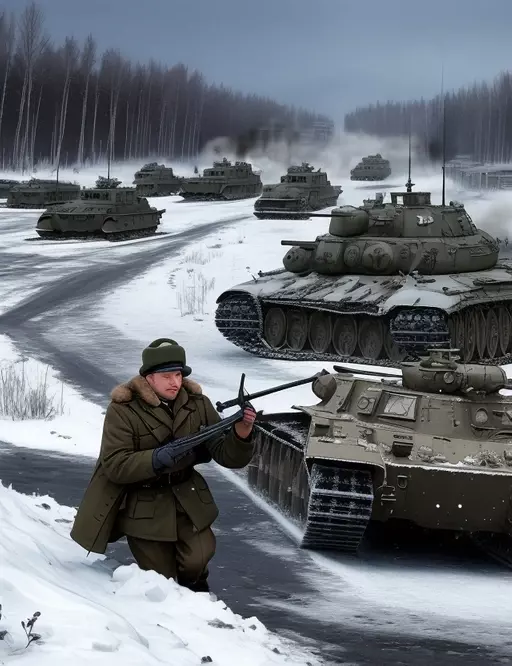The Winter War: Finland vs. the Soviet Union (1939)
Commencement of a Challenging Conflict

Introduction
On November 30, 1939, the Winter War commenced, pitting Finland against the Soviet Union in a challenging conflict that would unfold over several months. Explore the historical context, the events leading to the conflict, and the course of the war that left a lasting impact on Finland and the annals of military history.
Background and Historical Context
The Winter War had its roots in geopolitical tensions and territorial disputes. The Soviet Union, under Joseph Stalin, sought to secure its borders and influence in the Baltic region. Finland, an independent nation, became the target of Soviet territorial demands, leading to diplomatic tensions and, ultimately, military conflict.
Commencement of Hostilities
On November 30, 1939, the Soviet Union launched a military offensive against Finland, marking the beginning of the Winter War. The conflict unfolded amid the harsh winter conditions of the region, presenting both sides with immense challenges. The initial Soviet advances faced determined resistance from the Finnish forces, showcasing the resilience of the smaller nation.
Course of the War
The Winter War witnessed fierce battles in challenging winter terrain, with Finland employing innovative tactics, including guerrilla warfare and the effective use of the natural landscape. Despite being outnumbered, the Finnish forces displayed remarkable courage and tenacity. The war's duration and intensity drew international attention and sympathy for Finland's plight.
Impact on Finland
While the Winter War ended in March 1940 with the signing of the Moscow Peace Treaty, Finland faced significant territorial losses. The conflict, however, bolstered Finnish national identity and resilience. The subsequent Continuation War further defined Finland's stance during World War II, as the nation sought to reclaim lost territories.
Lasting Significance
The Winter War holds lasting significance in the annals of military history. Finland's determined defense against a much larger adversary became a symbol of courage and resistance. The conflict's impact extended beyond the immediate territorial changes, influencing Finland's geopolitical position and fostering a sense of national unity.
As we reflect on the commencement of the Winter War on November 30, 1939, we recognize the challenges faced by Finland against the Soviet Union. The conflict, marked by determination and resilience, holds a place in history as a testament to the enduring spirit of a nation facing adversity.



